#ExMormon
Explore tagged Tumblr posts
Text
@dandyvampling this is the most rich mormon thing I’ve ever read lol.
hey you ever think about how the Cullen's love-bombing eventually replaced Bella's personality?
She mentions multiple times in the books that she despises expensive gifts, and the ones that actually leave an impact on are her Chevy and the wooden wolf bracelet Jacob gives her. The Chevy is second-hand from Billy, and the bracelet was carved by Jacob. They hold value to her because they have personality; they speak to her tastes and were given to her with those tastes in mind.
She loves her Chevy, but it is eventually replaced with a sleek, expensive designer car gifted to her by the Cullens. She adores the bracelet but Edward puts an designer charm on it to remind her of him.
Even her clothes, which she insists are fine and suit her, are replaced with branded sweaters, dresses and heels.
She hates the idea of any kind of marriage but Edward holds vampirism over her head to get what he wants. Even when she agrees to marry him (against her will) she wants to keep it simple, wanting to simply drive to Texas and get married via a drive thru- Alice begs Bella to allow her to plan the wedding and it's easily more ostentatious and expensive than her birthday party in New Moon, which she described as "a hundred times worse than I'd imagined"
They get rid of her preferred aesthetics in hopes that their consumerist one will stick, and one of the last things they do to her is literally strip her of her humanity.
She becomes a cold, perfect creature and as a result, is no longer allowed to have ties to her father, mother, her best friend or the interests she had before. She's converted into a Cullen and this shit is supposed to be romantic.
1K notes
·
View notes
Text
i have like the worst combination going on not only am i a klance truther but im a parxie
oh my god and you know what on top of that i grew up mormon AND in french immersion
im doomed
#klance#voltron#waterparks#waterparx#awsten knight#voltron legendary defender#exmormon#i hate french people
22 notes
·
View notes
Text
speaking of ethel cain her music is so, so important to me.
(FAIR WARNING I'M GONNA GET A TAD PERSONAL HERE)
hayden's religious upbringings are of course a huge part of her music and through it i've been able to better understand my own experience with it.
i've lived in utah my whole life. i was raised in the mormon church but left when i was 15. afterwards i convinced myself that "i left as soon as i had the critical thinking skills to doubt it so it didn't really affect me." but just a few months ago i was listening to sun bleached flies and it suddenly hit me that that wasn't true. for the next few days i listened to it over and over as i painfully came to terms with the fact that the church always has and always will be a part of me in some way.
and just these last couple weeks i've been having a similar experience with perverts. i've always had this unshakable feeling in the back of my mind that it's wrong for me to have any sort of sexual desire and the fact that i did made me a horrible person. perverts themes of sexuality, masturbation, viewing them in a religious context, etc. made me realize that that nagging thought was yet another belief forced into my subconscious by the church.
obviously i know she'll never see this but i still want to say thank you so much hayden. being a trans woman in an extremely religous area with deeply buried religious trauma and being able to hear a trans woman from an extremely religious area with religious trauma write music built upon her experiences has been so important for my own growth.
22 notes
·
View notes
Text
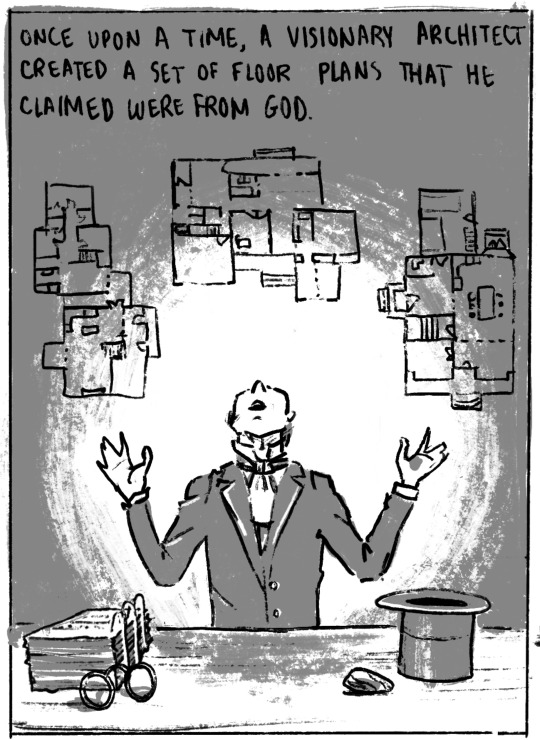
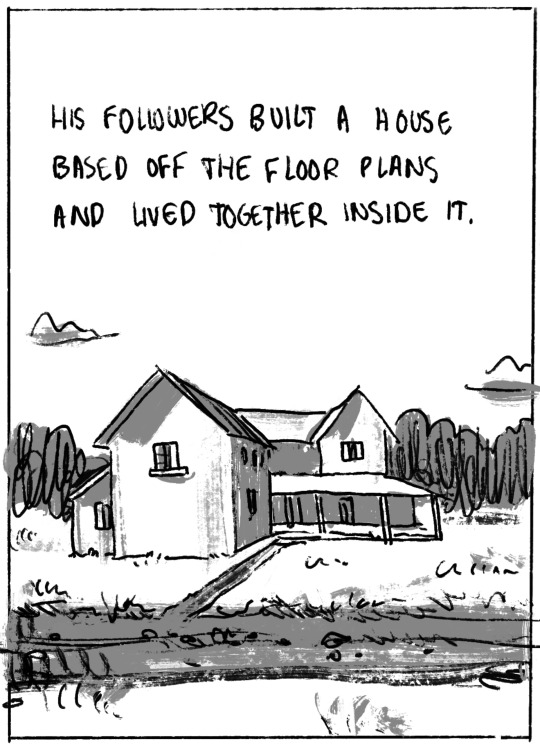
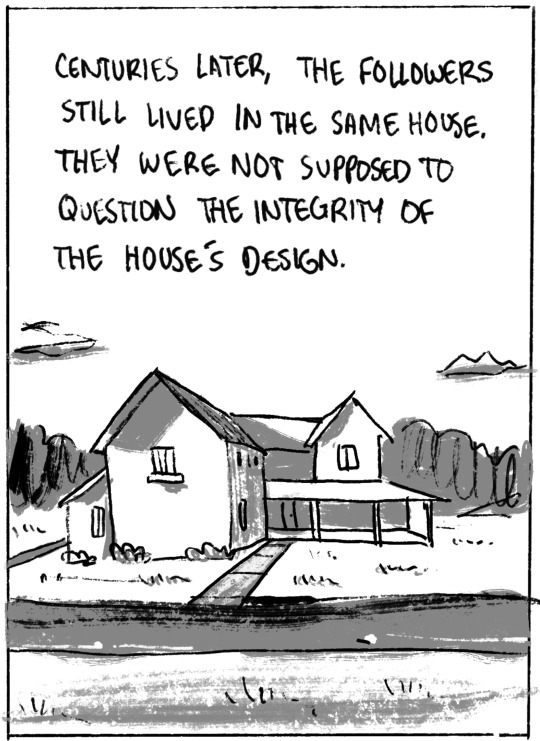
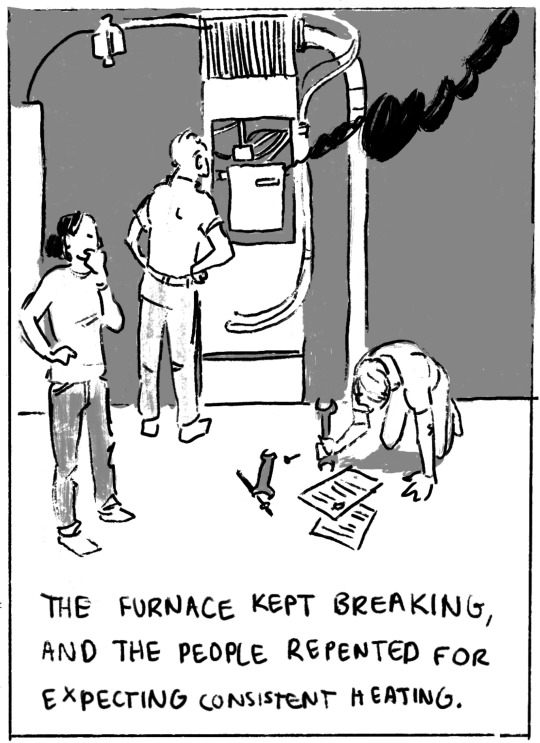
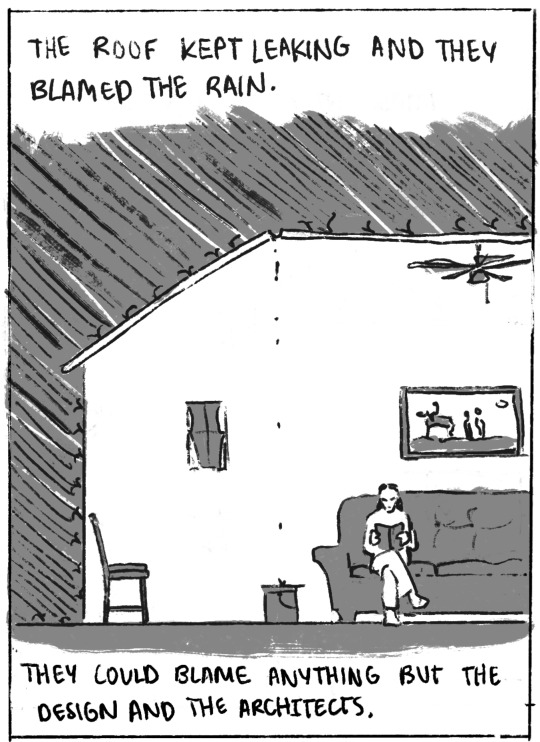

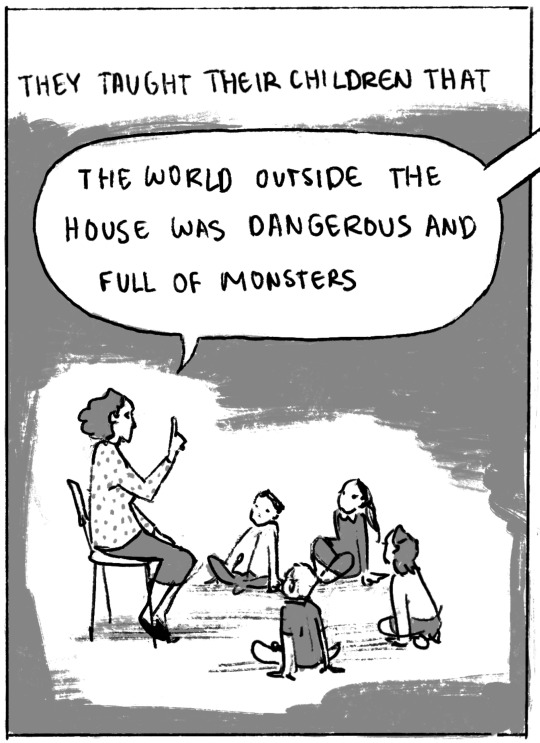
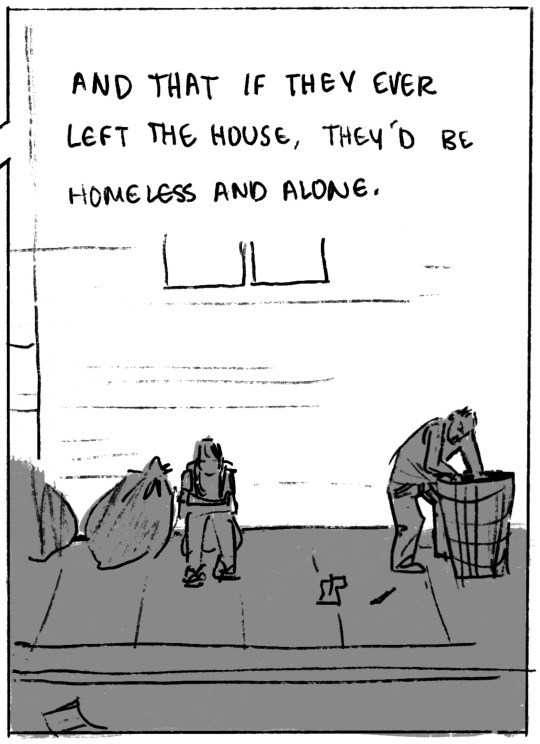
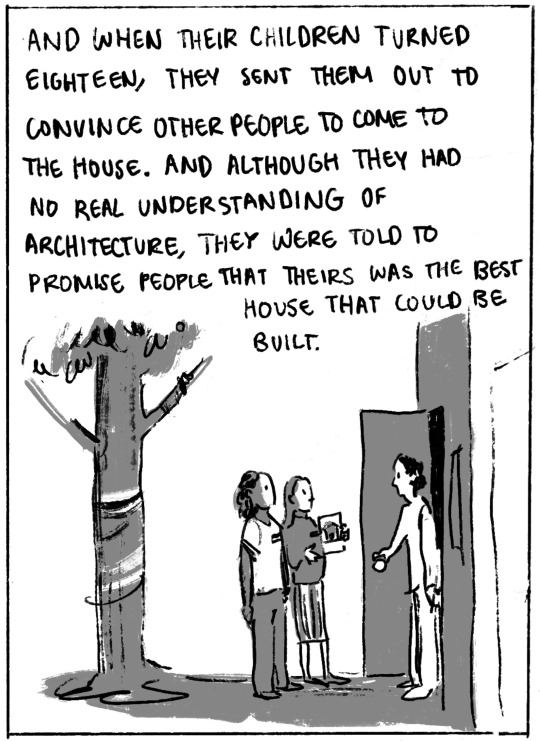
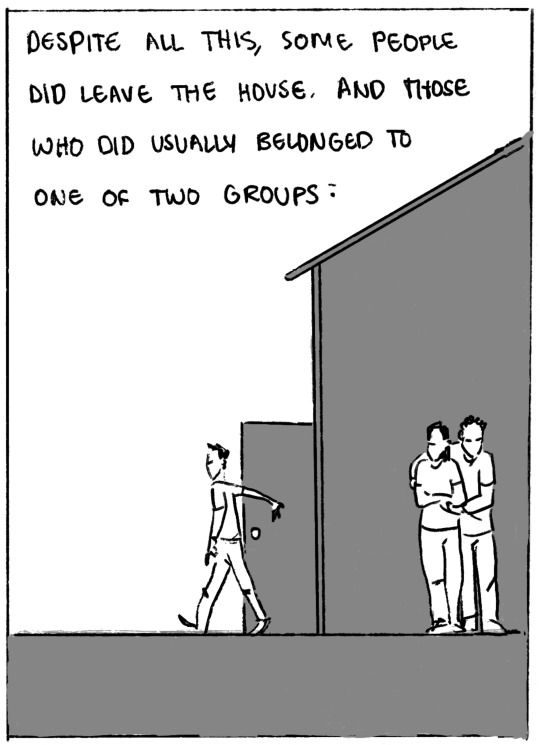
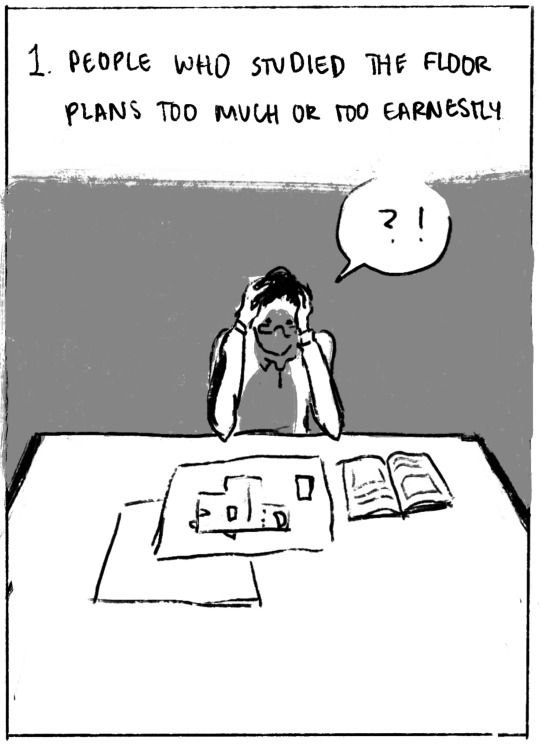
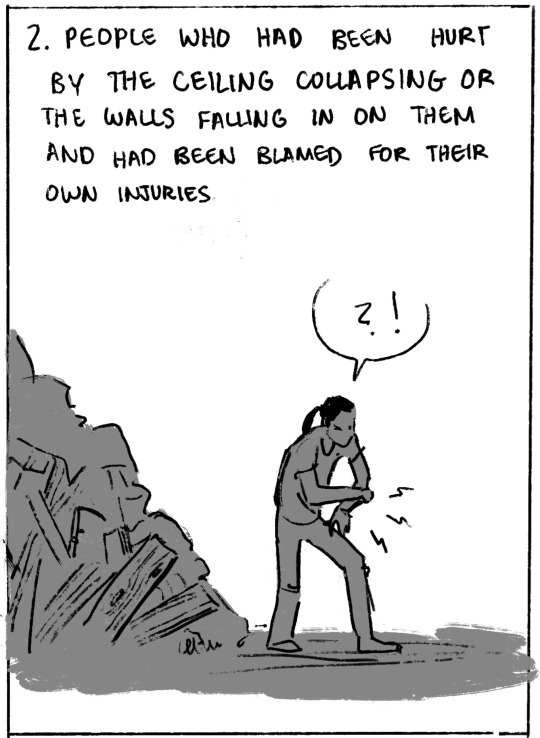
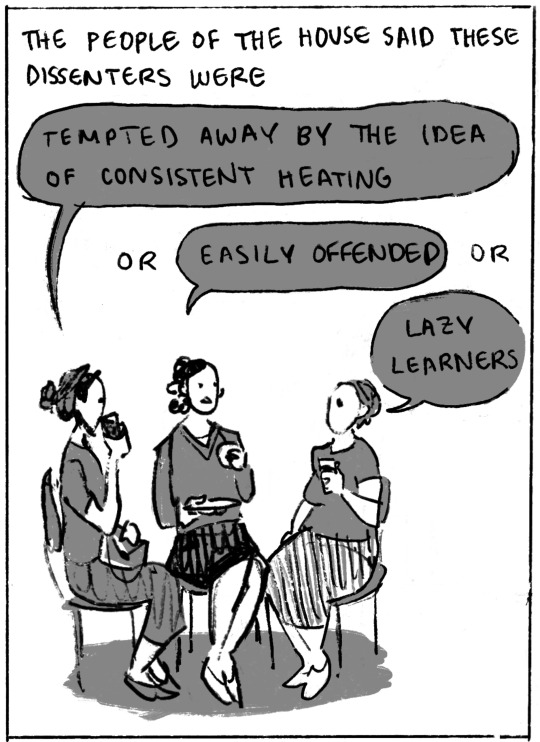

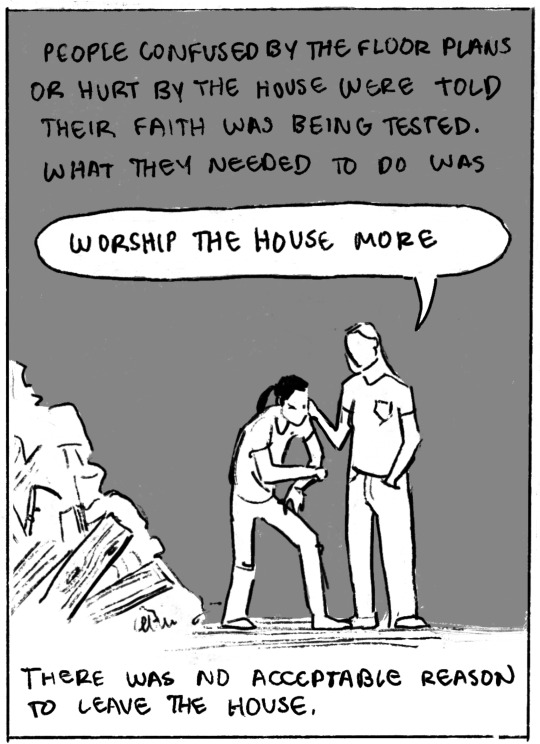
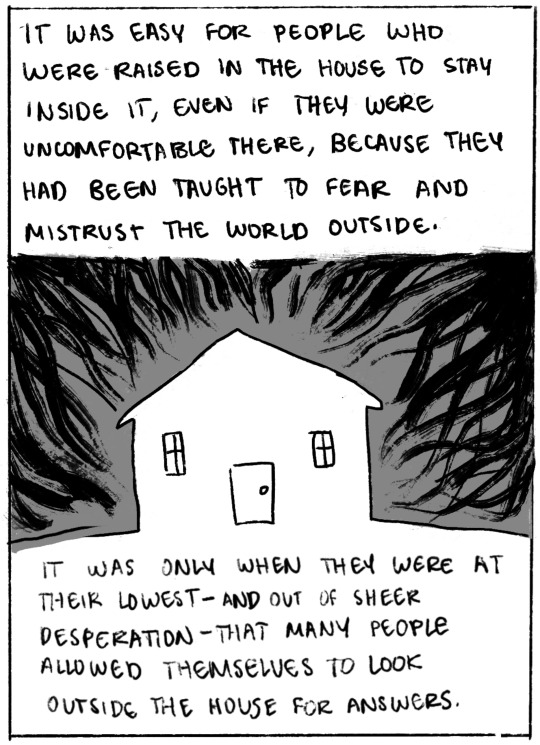
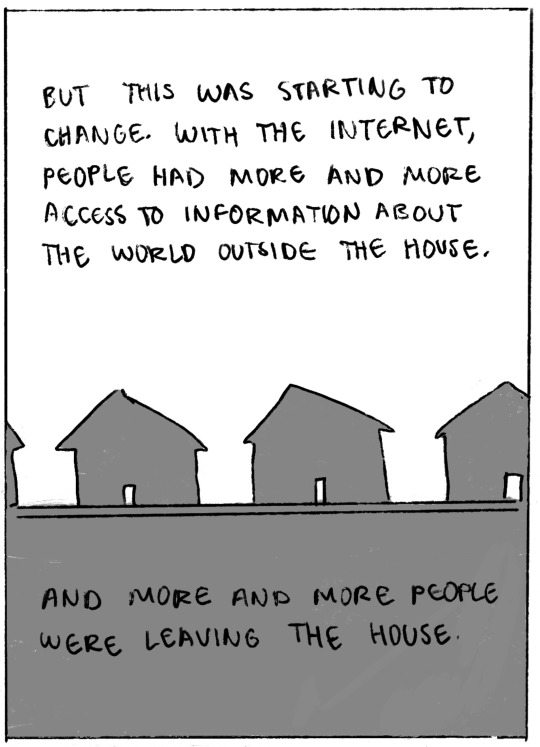
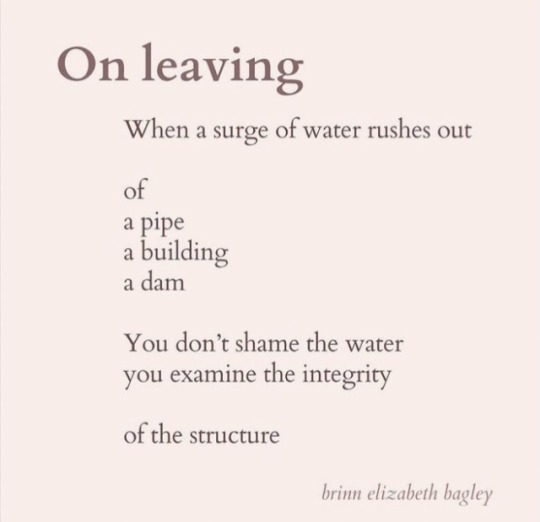
A comic I drew about leaving the Mormon church.
Can also apply to other things. Ex. constitutional originalism in the US
#exmo#exmormon#exvangelical#ex christian#deconstruction#deconstructing christianity#cults#christianity#religion#artwork#art#painting#comic#comics#graphic novel#parable#us politics#politics#highlights#housefire#constitutional originalism#united states of america#originalism#constitution#supreme court
16K notes
·
View notes
Text
so i left the mormon church as a teenager (15ish? 16?), but stayed in attendance until i was 20. i was pretty up front about the whole deciding-it-wasnt-true process with my bishop, who frankly took it really well, but it wasnt like i pulled all 150 ward members aside and had a heart to heart with them. anyway, i didnt believe, so at 19 i didnt go on a mission, and while some people in the ward were totally fine with that, others werent. and there was one woman in her late 50s who pulled me aside one day to interrogate me why i hadnt gone on a mission.
"the duty of every young man" she said.
and the thing is, im autistic. and a lot of people assume that when youre autistic, your social skills just arent very good. but thats not exactly true. your Be Polite skills are kind of eh, and they tend to stay that way, but as a sort of survival mechanism your Be Rude skills become amazing simply because you get put in tons of situations where your choices are to Function or Be Polite. and no one can choose Be Polite forever. the world demands function, it merely encourages politeness.
anyway, it can really catch neurotypicals by surprise, because hey, heres this kind of awkward, graceless guy, who stumbles over his words a lot and is very apologetic. hes probably a huge pushover. but i'm only like that when we're playing The Polite Game, because i am frankly kind of bad at it. but when its time to play The Rude Game, i go fucking ham and asking about the not-going-on-a-mission thing is Super Rude. so i said:
"sister hadlock... they wont let me go because i lit-er-ally cannot stop sucking dicks. i dont know why, its just so, so hard."
*dramatic pause*
"also - its very difficult to stop."
anyway, it almost killed her. i think she'd expected to just kind of steamroll me for the entire conversation, but the answer crushed her soul. instead of continuing her interrogation she made a noise like a horse drowning in a bog and left.
to add insult to injury, she went to the bishop after that, thinking he'd chew me out for being an ass, but instead he chewed her out for not minding her own business. then she went to my parents after that, who basically went "yeah, babylon was pretty rude. but youre also pretty rude. what are you, mad that he's better at it than you?"
i really loved that ward.
#mormon#exmormon#that ward was actually very kind to me#i know a lot of exmos have horror stories about getting ostracized but i only wound up leaving when i moved to my college campus#and ive just never been interested in attending anywhere else because it wasnt about Mormonism#it was about those guys#the village that raised me
9K notes
·
View notes
Text
When I came out, I was SO scared I was gonna get disowned. I wrote a letter to my parents, sent it to their emails, put a physical copy on the counter, and left the house for a few hours to give them time. In that time I tried coffee for the first time, which was a dreadful idea, and got all jittery. I kept waiting for a text or something but nothing happened.
After a few hours, I didn’t hear back from them so I went home. My parents were home and had stacked a bunch of groceries on top of the letter without opening it. They said “hi” and I said “hi” and went down stairs to the basement. I held my dog and panicked about what to do. My sister, who knew that I had written them a letter of great importance, told me they hadn’t read it yet. She also told me she could ask them to do so. I consented to this and stayed in the basement. A few minutes later my dad knocked on the door and poked his soft smooth little nerd head in and said “hey buddy” and I started crying so hard I almost vomited. He came over and gave me a BIG hug and said that it was gonna be OK, he was OK with this, he knew it must have been hard but he was here for me. He told me he and my mom had already talked years before they had me about how if they had to pick between their faith and their child they’d pick their child. It was a very sweet moment. I came out to my mom later that evening and we were both bawling the whole time.
The day after I came out to my parents, I came out to my brother @inbabylontheywept at a Mexican restaurant and he took it like a champ. That evening my mom took me for a walk and looked almost angry - she said she wanted to make sure that I didn’t use being a woman as an excuse to not go to grad school. I told her I wouldn’t and she instantly looked relieved and happier.
My dad, on the other hand, seemed to struggle with it. He kept asking me if I had a boyfriend, and I told him I did not. He kept asking me if I wanted to go clothes shopping with him and I did not. He kept asking me if I would let him go to some of my shows, and I had NO idea what he was talking about.
Finally, 6 months after coming out, of awkward misgendering and questions that didn’t make sense from my dad, he excitedly pokes his soft smooth little nerd head into my bedroom again and says “I found a movie about Your People.” My people. I was absolutely bewildered, but he was so excited and I knew he had been trying SO hard so I watched it with him. It was The Birdcage, and it was amazing. It also was revelatory in that I finally realized why my initially-supportive father seemed to be having such a hard time with my pronouns and stuff - he didn’t know what the difference between trans and doing drag was. After the movie he again asked if I would invite him to one of my shows, and I said, “Hey dad, you know how about half the world is women?” And he said “yeah,” and I said “Well, see, I’m on that half now. I’m not doing drag.” And it was like a switch flipped in his brain. He was like “omg that’s so easy? I was so confused about what to call you when?”
Anyway, my parents are charming and my family has been so kind and patient with me, I like sharing the stories of my little wins with them.
#tgirl swag#mormon#ex mormon#exmormon#worm#gay#tgirl#trans humor#transfem#trans pride#trans stuff#transgender#transgirl#sillyposting#silly little guy#dad#stories#family#short story#story
8K notes
·
View notes
Text
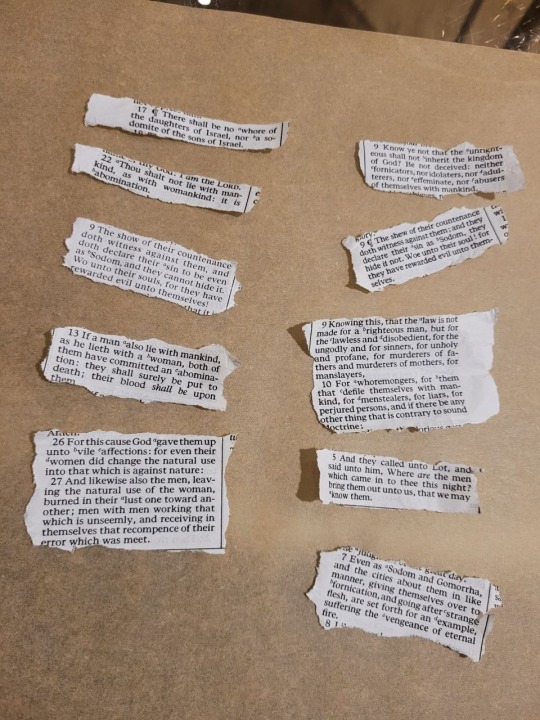
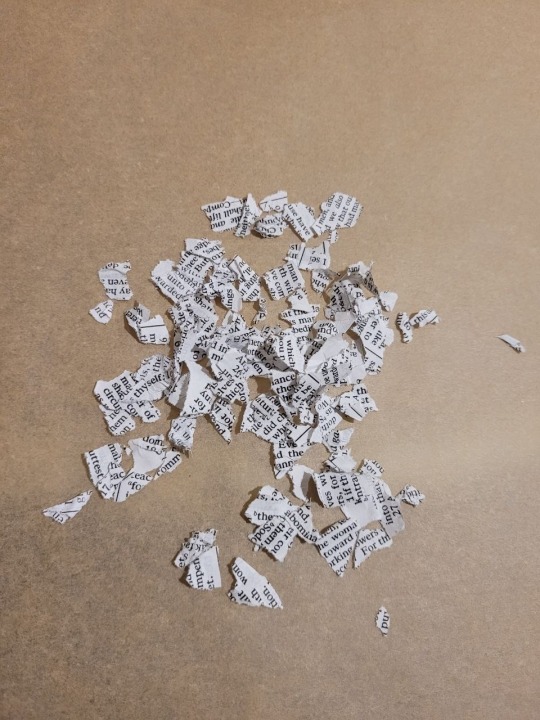
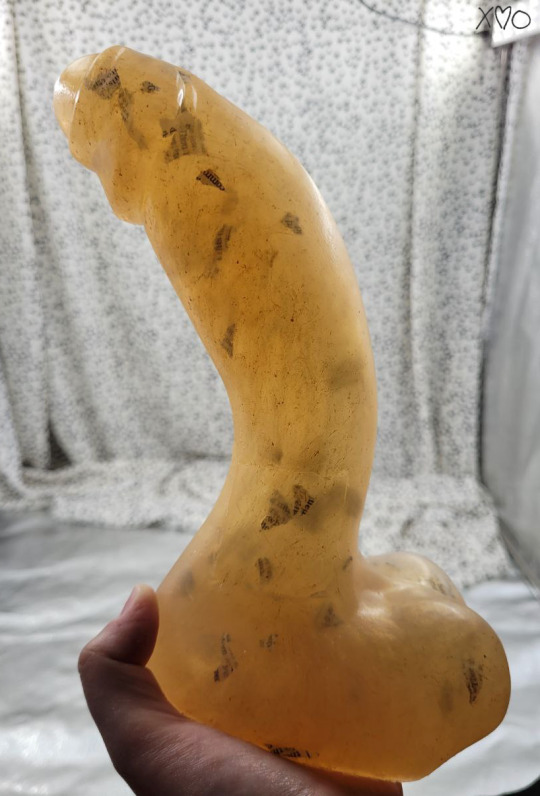

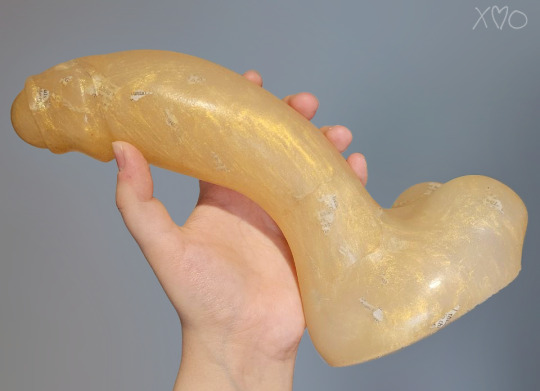



“Inseminary”
or “Lockpick to the Priesthood” or “Come Unto Me” or “Pearl Necklace of Great Price” or “Faith is Like a Little Seed”
Authentic stolen holy text, Near Clear silicone, gold pigment.
I went to the mormon church’s website, looked up their views on homosexuality, noted the scriptures they referenced, ripped them by hand out of the bible and book of mormon I stole from their chapel, and then mixed them into a silicone dildo of my own design like confetti. A dildo which will of course be used for homosexual purposes (with non-lubricated condoms and water based lube, for safety).
I’ve wanted to try dildo making for literally over a decade. I don’t have any fancy equipment like a 3D printer or a vacuum chamber, I made the sculpt by hand, and I fucked up a lot along the way, but all that being said I’m proud of what I was able to accomplish and I learned a lot. I put in more gold than I meant to, but honestly, it was meant to represent scripture’s gilded edges, and as it turned out, it looks really beautiful or quite filthy depending on the lighting, which feels entirely appropriate for scripture.
It was hard to read all of those verses. But as I tore them up I bathed them in the intention to take words that were meant to inflict queer pain wherever they go, and say “Actually, I pull those words out when I want some queer pleasure.” Build joy where they want you to have it the least.
Read about/donate to the Timpanogos tribe, for whom brigham young sent out an “extermination order”
LandBack
#exmo#exmormon#apostake#apostate#blasphemy#sacrilege#my art#2024#this was honestly so much fun#fucking expensive#but so fun
9K notes
·
View notes
Text
Teaching children thinking bad thoughts about someone is the same thing as murdering that person is fucked up.
Thought crime doesn’t exist. No one has ever been harmed or killed by someone thinking negative thoughts about them.
You know what has harmed people though? Teaching them they are evil for things they can’t control. Especially those who have intrusive thoughts.
Here’s for everyone who has been taught their thoughts make them evil.
Intrusive thoughts are not your secret desires.
They are involuntary.
You don’t need to be ashamed of them.
They will pass.
You are not committing taboo.
No one can read your mind.
No one will ever know what’s in your thoughts unless you feel like telling them.
No one can judge you for what you are thinking, whether voluntarily or involuntarily.
Your thoughts are private
You are not a bad person.
#religious recovery#reminders#i was randomly reminded of being taught that thoughts are harmful in sunday school#intrusive thoughts#ex religious#deconstruction#exvangelical#apostate#deconverted#deconversion#exmo#exjw#exmormon#ex fundie#thought crime
25K notes
·
View notes
Text

My contribution to the My Favorite Ship Dynamic trend.
661 notes
·
View notes
Text
quitmormon.com (a pro-bono legal team that helps people resign from the church) is fundraising to get a full-time paid lawyer and provide free mental health services to people leaving mormonism (especially LGBTQ+ people and our allies)
link to send support:
#kitty purrs#reposting this bc the og op was a r.adfem#exmo#exmormon#excult#ex cult#extian#quitmormon#apostate#apostake#ex lds#exlds
279 notes
·
View notes
Text
ballerina farm devastates me because y'all don't know how many girls i know who are her. how i almost was her. how so many girls i know were almost her. how many i know that will still become her. mormon girls, who, despite all their ambitions, will give up every one of their dreams for a man and a "traditional" lifestyle they were taught they needed, and call it equal. who will insist that he made sacrifices too. that though it's not what she wanted she's happy. being raised as a mormon girl in utah, or being a young woman converting to mormonism, you're taught that no matter where you go or what you achieve that you'll never be nothing more than your future husband. that your only purpose is to be a mother and a wife. and that full ride to julliard never mattered. and it never will. because you're a wife now. and you have eight kids to take care of. and a ballet studio that never came to be because it's a schoolroom. and your husband won't pull his weight even when you're fainting and bedridden from exhaustion. and your husband refuses to leave the room for your interview. and you admit to your epidural like it's a secret and it's something to be ashamed of. and you admit that this was never the life you wanted, this was never what you planned, and you still insist your happy. i know dozens of little girls who dreamed of being ballerinas. doctors. scientists. singers. movie stars. lawyers. authors. astronauts. olympians. i know that those little girls are now young women who go to church every sunday. wives. mothers. homemakers. caretakers. nuturers. fulfilling their heavenly duty. their obligation to their husband. i know a dozen hannah neeleman's. i know her because i almost was her. i know her because i see her in my mother and my grandmother and her mother too. and right now she's an internet trend who will disappear for most people in a couple months. you probably never learned her name. but i see hannah neeleman in every girl i grew up going to church with. in all the 18 year old wives and 20 year old first time moms. and it will be hard to forget the way her face still lights up whenever she gets to dance. feet moving along the hard wood of the schoolroom floor. and she will be someone more than her husband, more than a mother or a wife.
#hannah neeleman i don't like you but my heart aches for you#i hope in another life you got to be that ballerina in new york#ex mormon#exmo#exmormon#hannah neeleman#ballerina farm#this is me rambling at midnight ignore me#personal.txt
513 notes
·
View notes
Text
It really bothers me when people describe the way I grew up as "sheltered" when in reality I was not being sheltered or protected. I was intentionally confused. I was kept in the dark. My reality was being controlled.
#exmo#mormonism#exmormon#tw religious trauma#anti mormonism#ex mormon#anti mormon#apostake#ex christian#ex religious#my mother would fight tooth and nail to claim that she is a better mother than most#but the things she did and did not do for us is SHOCKING#for people who actually had good mothers at least
746 notes
·
View notes
Note
Okay, wait, this "Blood Atonement" thing is the belief that... If I understand it correctly, Christ's sacrifice did not fully eliminate the need for sacrifice to atone for sin, and certain sins required the blood sacrifice (Voluntary or otherwise) of the sinner to achieve salvation?
As an atheist with protestant roots this strikes me as shockingly heretical in its departure from ordinary Christian doctrine.
I'm not sure I entirely have a question other than "Am I understanding correctly" and I guess "What the heck?"
It's a bit more complicated than that, but you've got the basic idea.
There are two foundational concepts that you need to understand in order to fit blood atonement into Mormonism properly, and those are Perdition and Having Your Calling and Election Made Sure (I'm going to abbreviate the second one).
Perdition is the condition of being sentenced to outer darkness, which sounds pretty straightforward. It's basically just the standard protestant idea of hell. However, unlike protestantism's concept of Jesus's atonement being infinite in the sense that it's open for anyone to opt into, Mormonism believes that the atonement is infinite in that it guarantees salvation for everyone regardless of personal decision. The whole concept of a tiered heaven can, therefore, be based entirely on personal merit and the completion of specific ordinances, as it's ostensibly built around the idea of growing into the sort of person who would actually be comfortable living there, and not about whether or not Jesus paid the price of admission for that specific individual.
This creates a real-world problem, though: the threat of damnation is an indispensable tool in the arsenal of a religious leader who wants to coerce people into taking certain actions, and Joseph Smith is at this point in history desperately in need of a stick with which to threaten people into compliance. So he develops a new kind of threat based on the figure of Cain. The basic idea of perdition is that there are certain acts that alter their perpetrators on a metaphysical level to the point where they can't exist within god's presence even a little bit, and will not be able to live in any kingdom of glory post resurrection. (There's a whole tangent about mormon cosmology I'm not going into here, but the short version is that the kingdoms of glory operate via divine Reaganomics, and terrestrial and telestial glory are the result of god's celestial glory trickling down).
So, the two sins that damn one's soul and body to perdition are "the shedding of innocent blood" and "denying the holy ghost." The first one is mostly employed rhetorically as a point of comparison and serves to underscore how serious the second one is. What exactly constituted a sufficient degree of apostasy to qualify as perdition-worthy was left intentionally vague by Joseph in order to enable him to threaten people from a position of unquestionable authority. It's all pretty standard new religious movement stuff so far.
But now you run into a different problem: if murder is a potentially soul-threatening act, then you're going to need to waste time manufacturing a spiritual casus belli against anyone you need removed, and nobody who is trying to build a kingdom for themselves has time for that. Enter the second piece of the puzzle: HYCaEMS. Eventually known as the Second Anointing, HYaCEMS is the ultimate theological get-out-of-jail-free card, where the prophet guarantees you a spot in the celestial kingdom, and from that moment onward there's nothing you can do to disqualify yourself from it.
So now Joseph Smith has invented everything he needs to build his empire: a message of universal salvation to appeal to the masses that directly addresses the contemporary debates of protestantism, the ability to leverage the ultimate threat against any man who questions his leadership or any young girl who doesn't want to sleep with him, and the ability to offer the ultimate reward to his inner circle in exchange for their cooperation in carrying out his dirty work. He gets shot to death before he can do very much with any of this.
So now the stage is all set for Brigham Young to build upon the foundation his successor built. He expands Smith's nascent ideas into a fleshed-out universe. The curse of Cain is developed into mormon doctrinal racism, the law of consecration is developed into Deseret's United Order, and Joseph's early concepts of exaltation are developed into the ever-expanding hierarchy of gods.
In case you haven't figured out by now, Mormonism is built on a foundation of nitpicking specific semantic details and then extrapolating entire theological concepts from there. Blood atonement is primarily the result of Brigham Young doing exactly this with how blood is talked about in the scriptures alongside the use of the phrase "flesh and bone" instead of "flesh and blood" in specific contexts. Joseph Smith (and other contemporary religious figures, most notably those who would go on to form the Jehovah's Witnesses) had spoken quite a bit about blood and the symbolic and spiritual importance thereof, but Mormonism's unique contribution to the conversation was the idea that blood was mortality. Adam and Eve did not have blood until the fall, and Jesus didn't have blood after his resurrection. Blood contained both the curse of physical death and was also a metaphorical vessel for the soul, containing the sins of man, and therefore also carrying the curse of spiritual death. The most important moment of Jesus's life, according to Mormonism, was when he prayed in Gethsemane, as that's when he physically took the universe's sins onto himself and literally bled from every pore out onto the earth, as that's when he conquered spiritual death.
Still with me? Good. Now is where I need to talk about how mormon cosmology is built around the idea that planets, stars, the sun, and other heavenly bodies are living beings. Not in a metaphorical way but in a more literal sense. Stars and planets (including the sun) are essentially divine beings, home to beings that correspond to their degree of glory. This is important because Earth was also affected by the fall and became mortal and required all of the same saving ordinances as a human would. The flood of Noah was the earth's baptism (which means that according to this worldview, the entire earth was fully submerged under water), and the eventual fiery apocalypse of the world's end will be its confirmation, or baptism by fire. The earth's equivalent of the mormon Sacrament, then, was when it literally drank the blood (in Gethsemane) and ate the flesh (in the tomb) of Jesus. This act cleansed the earth itself of sin.
Ok, so now we finally get to talk about blood atonement in context. According to this whole paradigm, anyone who commits an act of perdition will have their very blood cursed and cut off from the presence of god. When they are resurrected to face final judgment, their sins will remain locked inside their now immortal bodies and prevent them from dwelling in any kingdom of glory (this point is not much elaborated on, and it's unclear whether bodies of sons of perdition have blood or are just metaphysically bound to it somehow).
When Cain slew Abel, Abel's innocent blood soaked the earth, and that blood cried out for justice, but Cain was cursed with perdition, so his blood could never be shed, and it wasn't until Jesus soaked the earth with his blood that Abel's blood's need for justice was fulfilled. The earth, having absorbed divine blood capable of paying the price of justice for innocent blood, can therefore act as an intermediary for this sort of thing.
But doesn't that undermine the whole "infinite atonement" thing? Well, yes, but not anymore than the necessity of any other ordinance within Mormonism does within the same framework. Jesus was baptized, and anyone who wants to access the specific covenants locked behind baptism needs to be baptized. Jesus, while not a murderer, took those sins upon himself and shed his blood, so any murderer who wants to access the redemption must also do so. Shedding your blood upon the ground becomes a sort of conditional ordinance that's only necessary if you've committed the otherwise unforgivable sin of murder.
Now you'll notice that we're only talking about murder here and not apostasy. That's because, crucially, those are the same thing as far as Mormonism is concerned, as you're spiritually killing someone (yourself and potentially your family as well). Brigham Young prescribed "death on the spot" for mormons who engaged in the apostate act of miscegenation, for example.
Now, I want to stress that it's extremely unclear how many people, if any, were actually blood atoned for apostasy, how many people, if any, were executed in ways that did not shed their blood because they were deemed "apostate," and how widespread or accepted any of this doctrine was beyond church leadership. I also want to make it clear that there is no credible evidence that suggests that either the doctrine or practice of blood atonement is taught or practiced by any branches of Mormonism beyond certain fundamentalist sects such as the FLDS under the leadership of Warren Jeffs, or isolated incidents such as the Lafferty Brother murders.
The mainstream LDS church has quietly de-emphasized or de-canonized almost all of these teachings, including many of the foundational elements. You can occasionally find church officials expressing some or even all of these beliefs in unofficial settings, but the most recent examples are the likes of Cleon Skousen, Hugh Nibley, Bruce McConkie, and Joseph Fielding Smith, all of which are decades ago at this point, and virtually all of which are inaccessible via official church records.
So there you go. I feel obligated to note that much of the connective tissue of this post comes from personal experience and decades of reading various official and semi-official writings on the topic and that I don't have a list of sources handy. Go read Under the Banner of Heaven (or watch the Hulu series) if you want a broader, better-sourced look at the history of violence within Mormonism (though note that Krakauer does dabble in conjecture, especially in the Hulu adaptation).
169 notes
·
View notes
Text
I don't know what atheist needs to hear this but when someone tells you they're a cult survivor, telling them that all religions are cults is both untrue and unhelpful 😌💕
#cult survivor#honestly atheists are more exhausting to talk to than hardcore christians like 90% of the time#exmormon#exmo
2K notes
·
View notes
Text
Being at BYU after my mission was weird. Like. Bad weird. Everybody was still acting like missionaries but they had nobody to teach so it all turned into the holier-than-thou bs that missions always degenerate into over time. Just the forced establishment of some weird social hierarchy where value is based on how devout you are, with people digging and scratching and clawing their way around humanity in order to become even more devout.
And this bullshit was actively killing me. The attempts to stay Good Enough were scraping the remnants of my humanity out of my husk like a spoon scraping the last bits of watermelon from a rind - I was doing what I had always done, be Mormon, do what Mormons do, be as good a Mormon as I could be, only it was breaking me. Instead of healing me, making me whole, taking away my burdens, it was pulling the life out of me in exchange for nothing. I was just being squeezed dry of everything I had to offer and being given back shame and isolation and rejection because I didn’t do it first, or fast enough, or with a willing enough heart, or whatever the hell they could come up with.
But despite myself, because most people smarter than me AND dumber than me would have left already, I found myself trying over and over and over again to make it work with no success.
One day, I snap. I’ve had enough. I need answers. I’ve looked everywhere and done everything I could by myself, and nothing had come of it, so I went to talk to a faculty member. A teacher at the school. He taught religion classes and his lessons were powerfully and inspiringly honest, earnest, and filled with raw humanity. I figured if I could get a straight (ha) answer from anyone, it would be that guy. He wasn’t involved in the Mormon rat race. He wasn’t playing the stupid “I’m Worthier Than You” games that were so pernicious on campus. He was being real and open and vulnerable and I needed that from someone.
So I go into his office and I lay my cards on the table. I figure if I’m gonna get helped, I need to be honest. I share with him my weird feelings about dad leaving the church on my mission. About my siblings leaving the church. About my own doubts and hurts. I tell him about how hard it is to be in limbo like this without knowing what to do or where to turn. I tell him I need answers.
And he listens. And then he starts with the usual Mormon apologetics bullshit. And I say “no” because I’m done with that. That doesn’t fly with me anymore. And he sees and hears me say no and he puts a hand on mine, makes direct eye contact, and says,
“You know, you don’t have to go to church, right?”
I, being a person who was hurting, interpreted that as “if you have questions that I can’t answer you should fuck off.” I got defensive immediately and he again listened, put his hand on mine, and said,
“Not what I meant. You can stay if you want, but I want you to know you can leave too. Take a break. Give yourself time to heal. This isn’t supposed to hurt this much, and if it hurts you can take a break and come back when it feels good.”
I’m actually getting choked up just writing that out. Nobody had ever said that to me before. When I talked about my dysphoria to my parents, they said teenagers are supposed to feel like that a little bit. When I talked to people about my difficulties at church they had always told me that it was a sign that church was working. That I was doing it right. That growth was supposed to hurt, that excising the Natural Man from me was supposed to be difficult, that I was supposed to be feeling this anxious and sad and scared. I had never ever ever been told that pain and suffering were signs things were going wrong. I had actually explicitly been told by many many many many many many many many people that it was good, that the hurt and the heartache and the constant feeling of never being good enough and never being able to fit into my own skin or love myself in any meaningful way was desirable. That it was something they envied.
It’s not supposed to hurt. Some things can, and should. My parents were right that some body concerns were normal (although we later found out my specific concerns were more abnormal lmao, I got that tgirl swag). My family and friends were right that challenging myself with difficult assignments and ambitious goals was supposed to feel uncomfortable.
And at the same time, THIS was not supposed to hurt. I was not meant to have this gaping throbbing aching hole in my Me that never let up. It wasn’t supposed to hurt. IT WASN’T SUPPOSED TO HURT.
I don’t know when exactly I started crying, but I was crying the whole rest of the day. It was the first time in a while I had to actually take a Valium to clam down. It wasn’t supposed to hurt.
He also told me that if it ever stopped hurting I could always come back.
I think that was the day I really left. Others might say otherwise, I still tried to make it work for a few more months after that, but the idea that it wasn’t supposed to hurt really changed me.
If any of you are reading this - there are things that are supposed to be difficult. Things that are supposed to hurt. But if your faith or your beliefs about the world or yourself leave you feeling like you’ve been hollowed out at a minor mistake or setback, if your failures and setbacks leave you feeling raw and numb frequently, if the company you keep or the places you stay leave you feeling constantly inadequate with out hope or help, then I’ll tell you the same thing that professor told me:
You can go somewhere else. You can do something else. And you can always come back when you want.
But it’s not supposed to hurt.
#tgirl swag#mormon#ex mormon#exmormon#trans stuff#trans pride#gay#hurt#religious trauma#conditions of worth#good enough
1K notes
·
View notes
Text
Since yet another piece of media depicting the mountain meadows massacre as the most fucked up thing the mormon church has ever done just came out, I'd like to take another opportunity to direct everyone to the Timpanogos tribe website and encourage you to read about the black hawk war and the events surrounding and following it
brigham young literally ordered the mormon militia to "exterminate" the Timpanogos people - murdering the men and selling the women and children into slavery. The remains of Black Hawk were robbed from his grave and put on display in temple square until 1996
The full truth needs to be heard. It can't be minimized into something titillating but consumable. The Timpanogos people did not endure the grief and suffering brought by the mormon militia so people could both leave them out of the discussion and make money off a story they were erased from.
Again, please read for yourself on the Timpanogos website, spread the word, and donate if you can (there is a button for it on the site).
#exmo#exmormon#mormon#american primeval#under the banner of heaven#mountain meadows massacre#timpanogos#indigenous activism#black hawk war#landback
86 notes
·
View notes